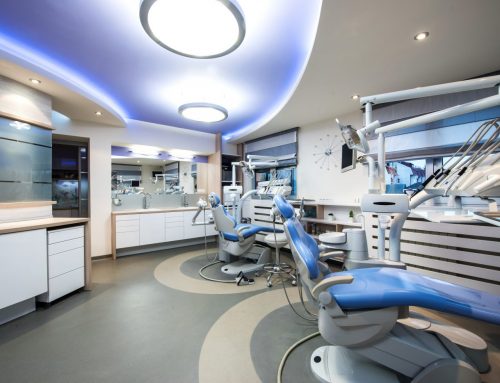Transitioning a Dental Practice is Not an Easy Feat.
There are various moving parts and important things to keep in mind, not to mention being tasked with selling a business that you have nurtured and grown for years, even decades.
Considerations to Selling Your Practice
What is your practice worth? When and by whom should you have it appraised? When should you start planning the transition? What criteria will you look for in a prospective buyer? Will you be able to sell the practice with enough profit to enjoy a comfortable retirement? When should you advise your landlord that you are leaving?
There’s no easy answer to all of the above, and this is just the tip of the iceberg.

Follow These Tips to a Smooth and Safe Dental Practice Retirement
1. Practice Appraisal – What is Your Practice Worth?
Various factors play their part. Location, your patient base (goodwill), the value of technology and equipment, and your dental office lease agreement, all contribute to and uniquely affect the sale price of your dental practice.
Many dental practitioners are shocked to learn that their practice is worth much less than they expected due to poorly setup terms and clauses within their lease agreement. The specific language contained in some common lease terms that can directly affect the value of a dental practice include the demolition clause, options to renew, surrender provisions, and assignment language. Negotiating a healthy lease at renewal time, years before your planned retirement, is critical to a profitable transition.
2. Timing Your Transition – An Action Plan
Often, dentists don’t plan to retire until their late 60’s or 70’s, or when old age kicks in and begins to affect their ability to practice. A common reason for this, aside from the obvious love of dentistry and emotional attachment to the practice, is the simple fact that some dentists don’t have the savings in place to retire comfortably.
Having worked in dental office/commercial real estate, and lease negotiations for over 20 years, we’ve found that many dentists fall into financial trouble due to poorly structured terms in their office leases. Every year, thousands of dentists across North America are forced to prematurely close their doors, work well into their 70’s, or retire with little retirement savings due to the business-shattering issues they’ve faced in their leases over their careers. It is recommended to start planning for retirement in your 30’s and 40’s, giving you ample time to setup the lease agreement properly, to protect your investment and facilitate your eventual practice exit.
3. Practice Sale Implications: Traps in the Lease
There are several important lease provisions to note when planning for retirement, including personal guarantees, assignment language, and surrender provisions.
Personal Guarantees
 Your lease may list you personally, or your business as the lessee. “Personal guarantees” in the dental office lease can leave you responsible for rental payments even after you have assigned it to a new dentist. Ensure that when your lease is transferred, that you, the original tenant, are no longer financially responsible for ongoing rental payments. For example, many dentists are left on the hook financially for the practice, years after the lease transfer, if the new tenant fails to pay rent.
Your lease may list you personally, or your business as the lessee. “Personal guarantees” in the dental office lease can leave you responsible for rental payments even after you have assigned it to a new dentist. Ensure that when your lease is transferred, that you, the original tenant, are no longer financially responsible for ongoing rental payments. For example, many dentists are left on the hook financially for the practice, years after the lease transfer, if the new tenant fails to pay rent.
While it’s recommended to try and structure the lease initially without any personal guarantees, if this is not possible, try to add a time limit to the guaranty post-assignment, with financial limitations as well. For example, adding language that prevents the landlord from approaching you for rental payments “x” number of years after the practice sale, for more than “x” number of dollars, would be of significant value in the lease.
Assignment Clause
Although you are the business owner, you may not be entitled to 100% of your profits from the sale of your practice. This comes as a shock to many dentists; however, language in the “assignment” clause often entitles the landlord to 50% or more of the sale profits for consideration. For example, if your practice is worth $600,000, your landlord may be entitled to $300,000 of the sale price. Ensure this provision is properly addressed well in advance of your retirement.
Will You Have to Restore the Space to its Original Shell?
The “surrender of premises” or exit clause in your lease agreement specifies how the space must be returned to the landlord, often requiring a dentist to restore the space back to its original shell, a costly endeavor. Check the surrender provisions in your lease to understand the agreement between you and your landlord, and ensure that you will not have to spend thousands of dollars gutting the space and restoring it when you exit. Also review the terms to ensure that upon your practice transition, all trade fixtures remain your property, not the landlord’s.
4. Informing Your Landlord of Your Practice Transition/Assignment
85% of dentists have a lease with language that can prevent them from ever selling their practice.
The assignment clause may allow your landlord to interfere with your transition decision. When ready to assign the lease, you will be required to notify the landlord of the transfer to an interested buyer. Many dentists are horrified to learn that some assignment provisions allow the landlord to charge more rent, remove tenant-friendly language such as “exclusivity protection”, deny the assignment request, or terminate the lease altogether!
Why Would the Landlord Want the Right to Terminate the Lease?
There are multiple reasons, but the main one is that it gives the landlord the option to enter into a new lease with the new buyer with significantly increased rent, and greater restrictions on the operation of the practice. Another reason is to leverage their position in order to secure proceeds from the sale of the practice. The landlord might request a particular percentage or amount of the sale price in exchange for not terminating the lease.
These situations outline why it is imperative to negotiate the office lease in your favor at renewal or startup time, before you choose an exit strategy. Get in touch with a professional dental office lease negotiation firm such as Cirrus Consulting Group, to ensure that the assignment of lease occurs properly, and that you are protected during this critical process.
The sale of your dental practice is one of the most important financial transactions you will make in your career – there’s no room for error. Therefore, it is essential to have a properly structured lease agreement in place that will protect you throughout your dental career and eventual practice transition.
Cirrus Consulting Group has been helping dentists in lease negotiations for over 20 years. Over the past two decades, we have reviewed over 20,000 lease agreements and helped guide thousands of dentists through a smooth and safe dental practice exit. For a complimentary consultation or dental office lease review, contact us by calling 1.800.459.3413.
Questions about transitioning your practice or upcoming negotiation?
Contact us for a personalized lease chat below.



